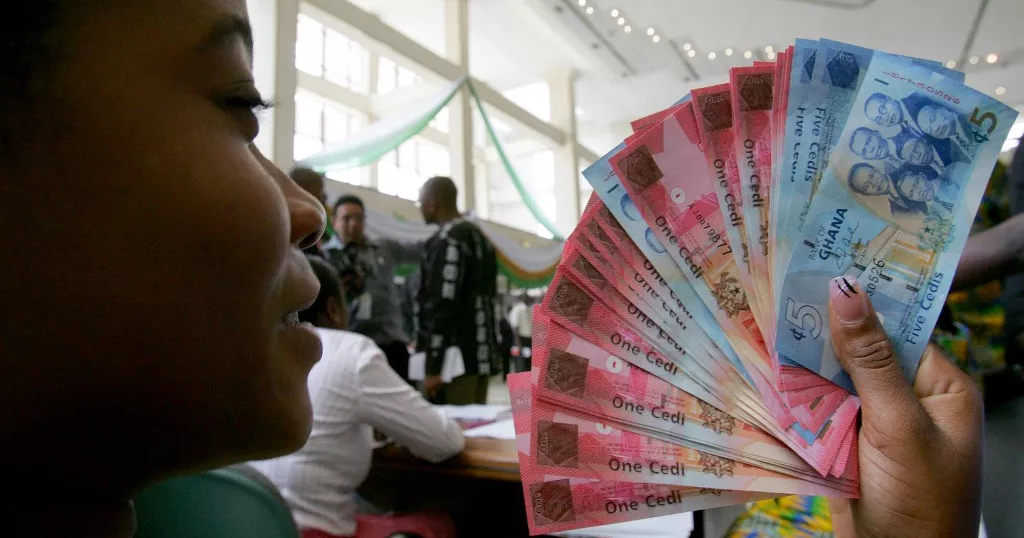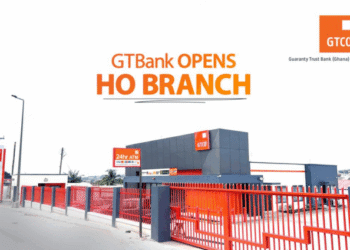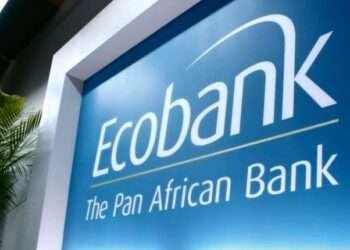The Bank of Ghana has reported a continued decline in average lending rates, with the figure dropping to 30.45% in October 2024.
This marks a slight reduction from the 32.69% recorded in the same period in 2023 and reflects consistent, albeit marginal, adjustments throughout 2024. While this downward trend signals potential relief for borrowers, its broader implications for Ghana’s financial sector and economic landscape require closer examination.
The average lending rate began the year at 32.94% in January 2024. Since then, monthly data have shown a steady reduction. In February, it dropped to 32.77%, followed by 32.35% in March. April saw a more pronounced decline to 31.25%. By mid-year, rates stood at 31.10% in June and further eased to 30.71% in July.
Interestingly, a slight uptick to 30.79% was observed in August before resuming the decline to 30.45% in October. The Ghana Reference Rate, which serves as a benchmark for lending rates, also decreased during this period, standing at 28.91% in October, down from 29.31% in August 2024.
This trend reflects the Central Bank’s commitment to maintaining a stable monetary policy environment amidst fluctuating inflation and external economic pressures.
Central Bank’s Policy and Inflationary Pressures
The Central Bank maintained its policy rate at 29% in November 2024. This decision came amid slightly elevated inflation levels driven by high and unstable food prices, the lingering effects of previous exchange rate pressures, volatile fuel prices, and utility tariff adjustments. By keeping the policy rate steady, the Bank of Ghana aims to balance the need for price stability with economic growth.
Inflationary pressures remain a concern for both lenders and borrowers. High inflation can erode the real value of interest rates, potentially reducing their appeal to banks. Simultaneously, rising costs of goods and services strain borrowers’ ability to service loans, creating a delicate balance for policymakers.
Although the average lending rate provides a useful snapshot of borrowing costs, rates vary significantly across banks and sectors. Some banks offer loans at rates close to the Ghana Reference Rate, while others charge as high as 40%. These variations depend largely on the risk profile of borrowers and the specific industries being financed.
Banks assess risks differently based on customers’ creditworthiness, repayment history, and the perceived stability of the sectors they operate in. For instance, loans to businesses in high-risk sectors such as startups or agriculture may attract higher rates than those to established industries like telecommunications or manufacturing.
Implications for Borrowers
For businesses and individuals, declining lending rates can translate into reduced borrowing costs, potentially spurring investments and consumption. Small and Medium-sized Enterprises (SMEs), which often face challenges accessing affordable credit, could particularly benefit from these reductions. Lower interest rates mean they can borrow more affordably to expand operations, purchase equipment, or hire additional staff.
However, the persistence of high rates for some borrowers underscores the need for further reforms in Ghana’s financial sector. Policies aimed at reducing the cost of credit for high-risk borrowers, such as targeted lending programs or credit guarantees, could bridge the gap and foster more inclusive economic growth.
While lower lending rates benefit borrowers, they can pose challenges for banks. Interest income from loans is a major revenue source for financial institutions. As rates decline, banks may experience a squeeze on profit margins, especially if deposit rates or operating costs remain high.
To mitigate these effects, banks may focus on diversifying revenue streams, such as offering non-interest financial services, or improving operational efficiency through digital transformation.
The Broader Economic Context
The decline in lending rates also aligns with Ghana’s broader economic objectives. Affordable credit can stimulate economic activity, promote entrepreneurship, and create jobs. However, these gains must be weighed against the risks of excessive borrowing and potential defaults, particularly in a volatile macroeconomic environment.
Moreover, the interplay between lending rates and inflation is critical. Sustained reductions in borrowing costs may only yield the desired economic outcomes if inflation is kept under control.
As 2024 draws to a close, the continued reduction in average lending rates reflects cautious optimism within Ghana’s financial sector. For borrowers, it represents a potential lifeline amidst economic uncertainties. For banks, it signals a call to innovate and adapt to changing market dynamics.
Moving forward, the Bank of Ghana’s monetary policy decisions, coupled with efforts to stabilize inflation and enhance credit access, will be pivotal in shaping the financial landscape. Ensuring that the benefits of lower lending rates reach all sectors, particularly SMEs, will be key to fostering sustainable economic growth in Ghana.
The coming months will reveal whether these positive trends can be sustained and translated into tangible benefits for Ghanaian businesses and households. For now, the decline in lending rates serves as a promising step toward a more resilient and inclusive financial system.
READ ALSO: CBG Leads the Way in Trade Finance with Transformative China Mission for SMEs























